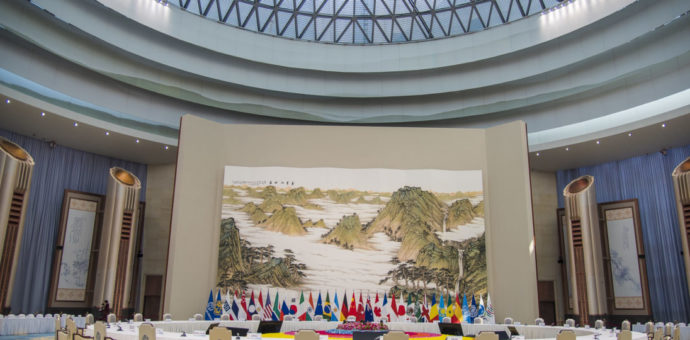World leaders met last Friday (June 28) and Saturday (June 29) in Osaka, Japan, for the meeting of the G20 Summit, formed by Heads of State and Government Ministers of the 19 world’s largest economic powers, besides the European Union. This should be the most important meeting of the Group since the financial crisis of 2008. All eyes will be on the possible outputs of the trade war between China and the United States, but the G20 countries are also aware of the cryptocurrencies issue.
However, the discussions relating to cryptocurrencies in this scenario occurred earlier this month, when Finance Ministers and Central Bank Presidents of the G20 countries gathered in the city of Fukuoka in Japan, for a two-day meeting. International standardization bodies presented alternatives to the crypto regulation in those countries.
IMF recommends attention to financial stability and consumer protection
The Director of the IMF, Christine Lagarde, highlighted the importance of harmonization of approaches between countries. She stressed the importance of the issue, but pointed out that it is necessary to look closely at issues related to financial stability and consumer protection.
Those present at the meeting discussed various topics, including innovation. The CEO of Blockstream, Adam Back, defended the importance of fiat currencies being issued in a blockchain. Additionally, he´d also explained his goal of allowing the OTC traders and institutional investors to exchange stablecoins and bitcoins linked to the yen. That is, the public could buy and store the yen in a cold wallet.
The Japanese Finance Minister has assured that various measures are being taken to allow innovation, as for example in the distribution ledger (DLT) and at the same time, mitigating the risks of cryptocurrencies.
Money laundering is among the main concerns of the G20 regarding the cryiptocurrencies
Regarding the global regulatory standards, varied global institutions are working on rules that can be used by the G20 countries. Several issues were addressed including the investor protection, market integrity, anti-money laundering, bank exposure and monitoring of financial stability.
Additionally, it was also discussed the creation of a record of exchanges, in an effort to prevent money laundering. Japan must get ahead of this issue. So far, 19 institutions are registered. They have to comply with highly strict rules adopted after the Coincheck was hacked last year.
With respect to financial stability, a report from the Financial Stability Board, an international body that monitors and makes recommendations on the global financial system, came to the conclusion that the cryptocurrencies did not represent risks to this matter. An European Central Bank report issued in May this year followed the same direction. The next report from the FSB will be published in September and will bring new developments on tokenization and stablecoins.
The G20 countries have also agreed to follow the recommendations of the Financial Task Action Force (FTAF) in tacking money laundering in the cryptocurrencies market. Later this month, the intergovernmental body must release a new orientation on this topic.
G20 countries must be attentive to the regulatory gaps of cryptocurrencies
Another topic discussed was the regulatory gaps. The warning given by the FSB is that rapid technological change in the cryptocurrencies markets can influence regulatory approaches and give rise to regulatory gaps that will require more focused standards.
The Basel Committee on Banking Supervision reported that it is evaluating the risk cryptocurrencies pose to the banking system. In this regard, the group is developing high-level oversight expectations for the banks which deals with cryptocurrencies.
Issuance of currencies by central banks on the agenda
With respect to the issuance of cryptocurrencies by central banks, the assessment so far is that institutions do not yet see the benefits of such a measure in view of the costs involved. Currently, the order to these institutions is to be cautious about the subject.
On the other hand, the International Organization of Securities Ccommissions (IOSCO) had informed that prepares for this year a report on the regulation of the crypto trading platforms and investment funds. The organization is also evaluating the ICOs. The idea is to help the issuers to deal with the regulatory risks of token sales in other jurisdictions. There is a public consultation to gather opinions of the market on that subject.







